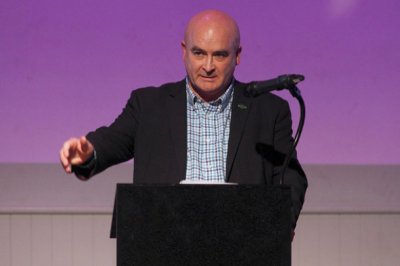
The Williams-Shapps Plan for Rail was published on May 20 th , 2021 and is based on the Williams Review of the future structure of the rail industry. This long-awaited government white paper follows almost three decades of rail privatisation. During this time we have seen fares shoot up, services have been lost, branch lines and stations closed and staff replaced by machines. Recent polls show a majority of people in Britain want a return to a publicly-owned and managed train system, rather than one which is run for profits. For example: three rolling stock leasing companies own more than 85% of trains running on Britain’s railways. Last year, Eversholt, one of these, paid shareholders a dividend of £46.5 million! Bridgwater Town Council Transport Spokesperson Cllr Glen Burrows (Labour, Eastover) says “Unfortunately, the government does not seem to have learned the lessons of the failed policy of rail privatisation – perhaps this is because hardly any government ministers use trains – or, if they do, they claim the cost on expenses. But that’s another story”
So, what is the Williams-Shapps Plan proposing? Does it really offer a major change in the way our railways are run?
By 2023, control of the railway system will be given to a new public sector body called Great British Railways (GBR). GBR will own and manage rail infrastructure, set fares and timetables, sell tickets and hand contracts to private companies to run trains. So, the same private companies that have led to the fragmentation of our rail system will still be allowed to make profits, while revenue losses will be underwritten by the taxpayer.
‘Missed Opportunity’ Says Rail Workers Union

Rail union RMT’s General Secretary Mick Lynch adds “This is a missed opportunity by the Government to make a clean break from the failures of the past that have left Britain’s railways in the slow lane. The Government talk about ending a generation of fragmentation, but then leave the same private companies in place under this arrangement to extract management fees that could be invested in building a truly integrated national rail network. The taxpayer carries all the risk, while the train companies carry out bags of cash. If the Government were serious about recognising the impact of failed rail policy down nearly three decades they would cut out the middleman, strip away the dead weight of the private companies and work with their staff on building a transport system fit for the future where investment in the workforce and infrastructure comes first.”

Mick Lynch is absolutley right. I was amazed and deeeply disappointed to realsie that the Government is still sub-contracting the provison of trains to the private sector. Nothing could be a greater indicator of how in thrall they are to their cronies and funders. My 12 years as a dictrict councillor and 5 years as a NED in the NHS showed me how useless Government organisations are at making contracts with the private sector. The companies run rings round the official bodies, who always end up meeting the costs, which were unforeseen by them but very well calculated by theprivate companies.